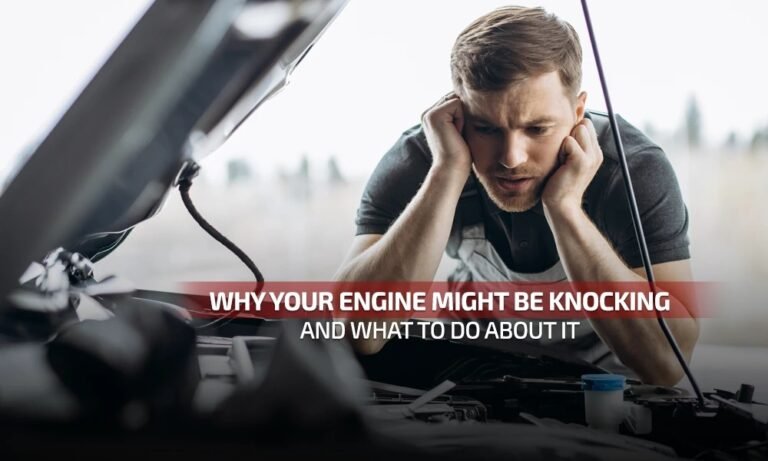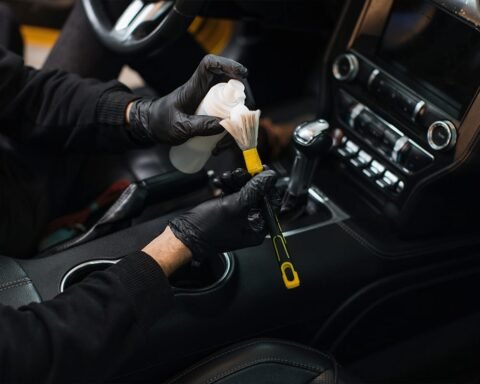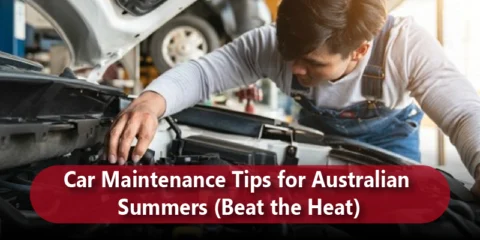That metallic pinging or knocking coming from your engine?
It’s not just annoying—it can be a ticking time bomb.
Here’s how to identify the issue, stop the damage, and keep your engine running smooth and strong.
Fuel Quality & Octane Mismatch
Using petrol with too low an octane rating causes uneven combustion (“detonation”), creating those sharp pinging noises.
Modern engines—especially turbocharged ones—need higher octane (95+) to run cleanly.
Always follow the owner’s manual to prevent pressure spikes and engine stress.
Carbon Buildup & Combustion Hotspots
When carbon accumulates on pistons or cylinder heads, it reduces combustion chamber volume.
That elevates compression and leads to pre-ignition or detonation, often accompanied by pinging.
Regular decarbonising or fuel additives can help maintain a clean burn .
Spark Plugs & Timing Issues
Worn spark plugs or incorrect timing disrupt burn timing, allowing fuel to detonate at the wrong moment.
Symptoms include rough idling and knocking under load.
Replace spark plugs at the recommended intervals and inspect timing if engine performance dropsl.
Low Oil Pressure or Faulty Rod Bearings
If oil levels are low or the oil pump underperforms, you deprive bearings of lubrication.
This results in louder, deeper knocks caused by metal-to-metal contact.
Don’t ignore oil-loss symptoms—catching it early can save your engine.
Failing Knock Sensor or Ignition Control
Most modern engines have knock sensors and ECUs that adjust ignition timing to prevent damage.
If a knock sensor fails, you’re left unprotected—and the ECU won’t correct detonation.
Testing and replacing the sensor restores your engine’s fault management .
What You Should Do Immediately
- Stop driving if the noise is constant—it could mean serious damage.
- Check oil level and top up with the correct viscosity.
- Fuel advice: Use the correct octane, and consider running a tank of higher-grade fuel.
- Replace spark plugs if you’re near their interval or if ignitions are misfiring.
- Seek diagnostics: Ask a mechanic to scan for codes, test oil pressure, and verify knock sensor function.
What Is Engine Knocking?
Engine knocking, also called pinging or detonation, happens when the air-fuel mixture in one or more cylinders ignites unevenly or too early—before the spark plug fires.
This uncontrolled combustion causes a sharp, metallic tapping or rattling noise, often from deep inside the engine.
It’s different from smooth combustion, where the spark plug fires at the perfect moment and the burn spreads evenly.
When knocking occurs, pressure spikes in the cylinder, which over time can damage pistons, cylinder walls, and bearings.
What Does It Sound Like?
Here’s what to listen for:
- Pinging or metallic tapping—like marbles rattling in a tin can
- Often happens during acceleration, up hills, or under engine load
- May be more audible when the engine is warm
- Can be steady or intermittent, depending on severity
What It Doesn’t Feel Like
- It’s not a kickback or physical jolt (like wheel hop or transmission lag)
- You might not feel it through the pedals or steering wheel
- But you may notice reduced performance, slower acceleration, or even engine hesitation in severe cases
How to Confirm It’s Knock (and Not Something Else)
- Try higher-octane fuel—if the sound goes away, knock was likely the cause
- Listen during uphill climbs or hard throttle—those are peak knock zones
- If it persists, get a diagnostic scan—a faulty knock sensor may be silent but deadly
If you feel it’s hard to tell whether your car’s engine is knocking or not, you should take it to the repair shop.
Yes. Engine knock isn’t only caused by low-octane petrol. Other triggers include carbon buildup, incorrect spark timing, or bad sensors. If you hear knocking despite using 97+ octane, have your ignition system and combustion chambers checked.
Absolutely. Turbo engines run higher compression, which increases the chance of knock, especially under load. Using the wrong oil or low-grade fuel in turbo cars—like the Ford EcoBoost or VAG 1.4 TSI—can lead to premature knocking and long-term damage.
Yes. Worn or incorrectly gapped plugs can misfire or cause late ignition, which leads to knock even when the engine’s not under strain. If idle feels rough and there’s a ticking sound, start with spark plugs before jumping to major diagnostics.
Measures to Avoid Engine Knock
- Use manufacturer-recommended fuel – usually 95+ octane.
- Avoid buying cheap or mixed-source fuel.
- Keep up with spark plug and service intervals.
- Use quality oils and log regular oil changes.
- Schedule decarbonising services every 20k–40k miles (30k–60k km) depending on your car’s design.
Engine knock isn’t harmless.
Also Read: Hear a Knocking Sound When Driving? Here’s Why
Even mild pinging chipped away over time can lead to costly damage—like popped pistons or ruined bearings.
Catch it early with the right fuel, clean combustion, healthy oil, and working sensors. Your engine—and your wallet—will thank you for it.







